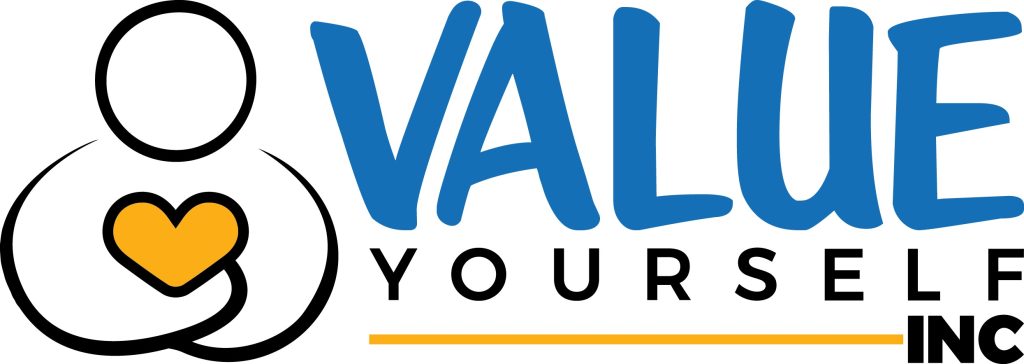8 Things that I’ve learned along the way
As I am sitting here writing this, I’m thinking I can’t even believe that I’m still working for myself after all of this time. Especially since most businesses fail within their first 5 years of operation. However, I was blessed enough to have been able to sell my very first business which was cool. After that though, things did get a bit murky but even still I never wavered. It’s actually sort of a cathartic release to know that I can endure the ups and downs of my trials and tribulations.
Success can sometimes be eluding, but I have no compunction whatsoever about the life that I chose. I chose entrepreneurship because I wanted freedom, and I value freedom above all things in life, including money. I was never the type to be bound to a 9–5, it just doesn’t allow me to be as creative as I would like. Not that there’s anything wrong with having a career in which you work for someone else but that vision just wasn’t my cup of tea. I turn 28 a week from now, and I have officially been an entrepreneur for a decade and I would like to share with you some of the things that I’ve learned along the way. Here are 8 things that I’ve learned so far, as a business owner being a decade into entrepreneurship.
- Save, Save, Save! Especially in your business’s infancy stage.
I see so many entrepreneurs making the mistake of spending money as SOON as they get it. Do not do this as your savings will often be what keeps you and your business afloat. Don’t make the mistake of believing that once you own a business, money just flows casually because that’s just not true. As a matter of fact, you’ll probably dole out more cash in the beginning of a business than you will at any other point in the journey. Always make sure you have cash on hand for business and personal expenses. Your savings with literally save you every time!
2. Don’t hire employees if you don’t have to. Delegate through independent contractors.
Okay so, short story time here! When Tidy Up, my first business started to grow, I had a hard time keeping up with the demand. So much so, that I decided to start hiring people and running payroll through ADP. Now while this may had seemed like a good idea at the time, it actually wasn’t. It was way more expensive than I imagined to have payroll services, so I scrapped that idea in favor of independent contractors. Now, I’ll go into the benefit of using contractors in another blog post but for now we’ll keep it simple. With contractors, you just need to make sure you have sufficient business liability insurance to cover them. With employees though, there’s a thing called workman comp, unemployment payments to the UIA, etc. This is going to be complicated for some to understand so just don’t hire employees if you don’t have too. Just stick to hiring contractors for work that you can’t perform yourself.
3. Learn when to transition from bootstrapping to utilizing business credit.
For those of you who are unfamiliar with it, bootstrapping a business is just basically using your own money and resources to grow the business, rather than taking out any loans. I encourage this method when you’re just starting out because I don’t think it’s smart to take on debt at the beginning of a business. When you take on debt, you leave little room to reinvest your profit margins back into the business so that it actually can grow. Take out loans too soon, and you’ll be spending the majority of your profit margins on paying the banks back, along with interest. There’s a method to the madness and a time when utilizing credit will serve you well. This is when you already have enough cash flow though to make your payments on time, with minimal interest!
I’ll do a separate article on the importance of building personal and business credit soon, so stay tuned!
4. Pay your taxes!!! You are responsible for your own taxes so get an accountant!
So many people say that you don’t need an accountant until you’re rich and I call BS on that! I’ve had an accountant ever since I realized that I knew jack shit about taxes and well, at one point I ended up owing them over $30,000 and I had to get out of it. Guess who got me out of it? The accountant that everyone kept telling me that I didn’t need. Let me just say this, my accountant Steve, is absolutely amazing! I mean, not only does he help you with your taxes but he teaches you about it at the same time. Take it from me, make it a point to pay your taxes quarterly. If you don’t, things can add up pretty quickly and when you’re making a lot of money, taxes aren’t pretty. This is why I don’t feel that you should classify yourself as a sole proprietor when registering your business. If you do this, know that you will be double-taxed. Instead, explore your options as an LLC or better yet, an S or C-Corp. (Not financial or tax advice, just sharing my experience here.)
5. Start building personal credit as soon as you can. It will serve you well the further you get into your entrepreneurial ventures.
Usually, before you’re able to establish business credit, you’d first have to have decent personal credit to get started. Cash hasn’t been king in some time now and it’s definitely not king when it comes to scaling a business. There’s a reason that some of the richest business owners in the world utilize credit to grow their businesses. For one, utilizing the bank’s money instead of your own provides you with more financial leverage. You’ll get more opportunities to invest and scale while still having cash to lean on if things go awry. Just be careful not to lean on credit as the sole means of building your business. The further you go into business, the more money you’ll need access to in order to grow. Cash is not king; CashFlow is king.
6. Have a solid exit plan for all businesses whether they succeed or fail.
This is actually something that I feel many people should spend more time planning. I’ll be the first to say it, I didn’t expect such success with my first business. I didn’t think about what I would do if we got too much business to handle or what I would do if we had failed. Because of this, though I sold my business for personal reasons, those personal reasons included pressure. Pressure that I wouldn’t have felt had I created an exit plan for my business in the first place. A solid exit and transitional plan for all businesses are a must. If your goal is to sell your business, you should spend time crafting what that process looks like for you. Similarly, if you are instead met with failure then surely you should have a plan to pick yourself up and try again. =)
7. You don’t need large sums of money to start a great business. You need good connects and great opportunities.
It takes money to make money but you don’t need a lot of money to make things shake. I started my cleaning business with less than $1,000 so the market and the opportunities are definitely what matters most. It’s all about who you know too, your contacts are paramount. To grow within entrepreneurship, you should spend a lot of time networking with those who are in your industry. Spend the same amount of time networking outside of your industry, as cross-marketing can be a powerhouse for spreading brand awareness. You don’t need $10,000 to start building something that can potentially be worth millions someday. Timing, what, and who you know might be a better investment strategy.
8. If you decide to sell your business, DO NOT take the first offer you receive.
This one is actually critical because you want to make sure that you have enough patience to wait this process out. If you don’t, then you’ll feel like your hand is forced and that you have to take the first offer you receive. Selling a business is a big deal and it’s something you should plan for. To be honest, I feel that knowing whether you want to sell your business or not should already be decided before you even open up. The process of selling a business can be tedious. It is my advice that you prepare yourself for the sale at least a year ahead of time. Also, if it’s your first time, you should definitely consult with a business broker. Don’t take the first offer you receive, wait for at least 3 offers. If you can wait your sale out for at least 6 months. Then you may receive some really good offers.
Entrepreneurship is a tough road, it’s not for the weak at all. However, there’s nothing better than actively seeking and living your dreams! It’s exhilarating to know that you’re walking in your truth, being your authentic self. We only get one life to live and we should live it to the fullest. If you’ve been thinking about starting a business soon and you’re reading this right now. Consider it your destiny and you have my full support should you choose to dive in. We all go through trials and tribulations to learn, grow and evolve. The best gift that we can give ourselves as humans is grace and understanding.
I hope you truly enjoyed this article. Until next time……=)

